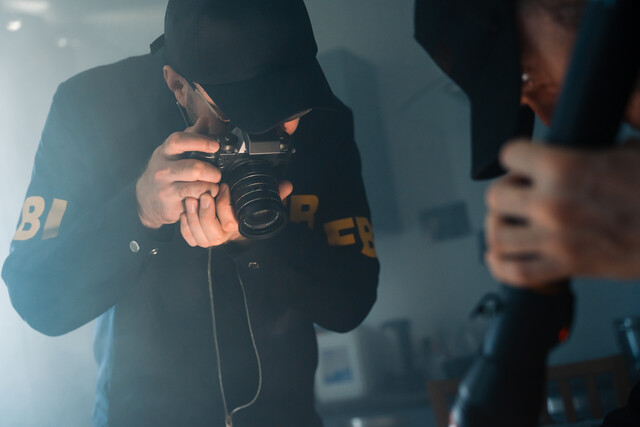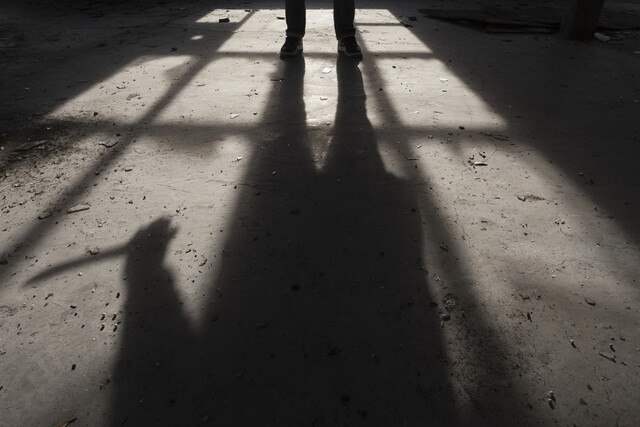Introduction
Are you right for the job? There is a big difference between what is perceived by the public and the reality behind a position as a crime scene investigator. Misconceptions vie with reality every step of the way. The job of a crime scene investigator in any capacity is not a glamorous job, nor is it a high-paying one in many jurisdictions. However, if you have the drive and the determination to succeed, you can make a difference.
One of the most valuable talents a crime scene investigator should develop is leadership. It takes many people with a variety of attitudes to completely process a crime scene. In addition, a crime scene investigator must learn to work with not only law enforcement personnel such as police officers, sheriff's deputies, county district attorneys and medical examiners, but also distraught family members, angry suspects and even later, with lawyers and judges.
A crime scene investigator must always remember that the person in charge of a crime scene is the lead case detective, and skills in dealing with other methods and procedures is essential to working together for the benefit of a victim and his/her family members. One must learn to work with hostile co-workers concerned about infringement upon "their" crime scene or even with the difficulties caused by inter-departmental politics and egos.
Learning how to adapt and maintain a professional manner at every crime scene or incident will take a crime investigator far toward establishing long-term working relationships between wide ranges of personalities. Crime scene investigation takes cooperation and discipline between various personnel, each of whom may be in charge of only a small portion of a crime scene.
To complete the tasks set before any crime scene investigator, he or she must be a detail-oriented person in determining the evidence. Being able to multi-task is vital at a crime scene, as is the ability to be flexible and use common sense. No two crime scenes are alike.
It is important that anyone contemplating a career as a crime scene investigator not allow what is seen on television and in the movies to influence their decision. Processing and labeling evidence takes hours of painstaking work and focus. Due to backlogs, crime lab results may take days, weeks or even months to complete. Some of the most popular television shows these days, namely CSI, A&E Biography and true crime shows like Forensic Files and New Detectives, have not only educated the general population about forensic advancements, but criminals as well. While not intended to help criminals, such shows nevertheless have caused most criminals to be more careful about leaving behind fingerprints and other forms of DNA recognition.
While criminals may be getting smarter, so too are forensic detectives and crime scene investigators. It is true that a single hair may identify a suspect. Because of this, criminals are making more attempts to destroy the remains of their victims, wear condoms in the perpetration of sexual assaults and wear gloves to prevent leaving fingerprints behind. However, a criminal will never be able to erase every trace of his presence at the scene of the crime. It may be microscopic, but it will be there. It is up to the crime scene investigator to find it.
Two of the biggest lessons a crime scene investigator must accept are repeated here:
Things are not always as they appear to be.
Do it right the first time; you only get one chance.
Nothing is more important to the crime scene investigator than finding and collecting the evidence. Crime scene reconstruction is one thing; reaching a conclusion before all the evidence is collected is another.
Anyone who is thinking of becoming a crime scene investigator may want to test their stomach for the job on their own, before signing up for courses. In most cases, crime scene investigators are experienced law enforcement officers who step into positions as they become available. However, civilians may also become crime scene investigators without any previous law enforcement experience. For these civilians, the job may prove more difficult because up until that point, they have avoided the carnage and blood that is associated with any crime scene.
To determine whether or not a crime scene investigator hopeful has the stomach for the job, it is suggested that he or she make arrangements to either view an autopsy or surgical procedures at a local hospital or visit the local mortuary. In this way, the CSI trainee can become accustomed to the sights, smells and feelings that blood and other body fluids such as urine, vomit and feces, elicit as well as what a body looks like after death. Of course, this is not the same as entering a crime scene for the first time, but merely "baby steps" into the world of violent death.
Suicides, homicides and accidents rip and shred bodies apart, cleave skulls and crush limbs. There is no crime scene that will not leave an impact on the crime scene investigator in one way or another. The coppery smell of blood, the musty, acrid odor of decomposition, the combination of vomit and urine can turn the strongest stomach. Strength of mind is an important facet of the character of a crime scene investigator. Being able to focus on the search for evidence despite the fact that he or she may be searching on the exploded skull remains of a suicide victim is essential in determining the truth.
Crime scenes involving children are some of the most difficult that any crime scene investigator may face throughout his or her career. Nevertheless, feelings and emotions have no place at a crime scene. This is not to say that the crime scene investigator should not care; what it does mean is that a good crime scene investigator will not allow feelings to get in the way of searching for all the evidence that may be present at a crime scene. Preconceived notions or judgments have no place at the crime scene, no matter how it may initially appear. A good crime scene investigator always lets the evidence speak for itself. All the evidence must be collected and analyzed before a decision or judgment on what occurred is made.
Depending on where a crime scene investigator is based, he or she may have access to a wealth of the latest technologically advanced forensic equipment. Or, he or she may have to make do with what almost seems like archaic methods of collecting and preserving evidence. Not every crime scene lab or officer has access to alternate light sources or gadgets that measure air density. Because of this, anyone seeking to become a crime scene investigator must be able to rely on their training and their determination to hone skills and experience in order to become a good investigator.
Conclusion
The characteristics of a good crime scene investigator are not applied through the use of fancy equipment but through the application of common sense and the search for knowledge and truth.
A CSI is the sum of many parts, and each part must coincide with the other in order to perform the main tasks of a crime scene investigator: protect and preserve the evidence.

























